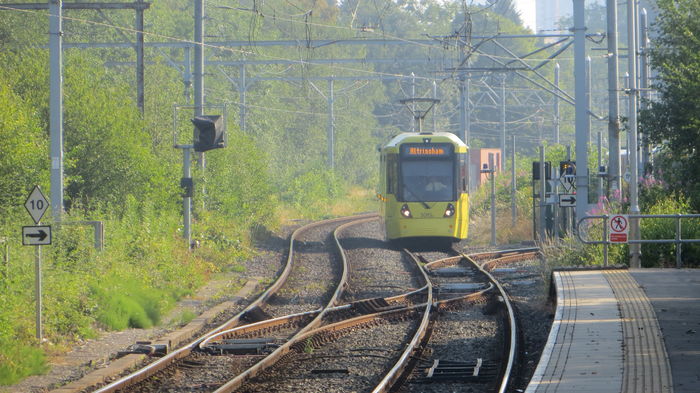Goodbye to my beloved bike
Sustainable transport in Cambridge should be a model for the rest of the country, argues Alex Lee

The Department for Transport recently released the results of the National Travel Survey for 2023, recording English residents’ travel behaviours. The results? Good news if you enjoy car spotting and dislike those pestish, law-breaking, eco-warrior cyclists and scooterists! Bad news otherwise, as cars continue to dominate ahead of more sustainable, spatially efficient and healthy modes of transport, with an increase in the number of trips and the distance travelled by car since 2022. So much for a green recovery from Covid-19.
Perhaps the most concerning results were those regarding short trips. The survey revealed that people mostly travelled within their local areas – 25% of all trips made in 2023 were under one mile and 71% of trips were under five miles. These relatively short distances should be the perfect remit for trips by foot or by bike, right? Wrong! As it turns out, 17% of trips under one mile were still done by car/van, whilst almost 70% of trips between one and five miles long were made by car/van. How has Britain failed so miserably as a country to diversify its transport infrastructure that more people do short trips by car/van than by bike, scooter, bus, tram and every other vehicle combined?
All is not doom and gloom, however, and Cambridge provides a glimmer of hope as an example of how future travel habits can shift in a more sustainable direction.
“How has Britain failed so miserably to diversify its transport infrastructure”
Here in Cambridge, I have the privilege to be able to safely walk or cycle to virtually every destination I could ever need to access. Yet, this should not be a privilege. There is nothing so unique about Cambridge that it is impossible for other places to replicate its success in fostering active travel. Walking and cycling are not alien activities performed solely by urbanites within the Cambridge bubble, but behaviours which can be encouraged anywhere with adequate infrastructure and incentives. A quick look around Cambridge city centre reveals how a few traffic calming measures and traffic restrictions have fostered a space in which walking and cycling are the easiest ways of getting around, all without even needing to build much dedicated cycling infrastructure!
Cambridge students are not inherently sustainable people or enthusiasts of active travel. It just so happens that when you make sustainable and active methods of transport the most convenient, people will use them. As demeaning posts towards ‘wobbly freshers on bikes’ can attest, even people who have barely ridden a bicycle in their entire life feel comfortable adopting the two-wheeled contraption as one of their main modes of transport.
“Cambridge does not have to be a distant phase in your youth where you walked and cycled”
However, in places where the infrastructure does not facilitate healthy and sustainable modes of transport, people are as quick to ditch their bikes as they were to mount them. Between July and September every year, used bikes for sale appear en masse on Ticketbridge along with a barrage of captions saying something along the lines of ‘goodbye to my beloved, trustworthy bike’. Why? For some, taking a bike back to their home country after graduation poses a bit of a logistical challenge (fair enough, I forgive you). For others, the bicycle was a short-lived tool for their time in Cambridge – a relic of a brief period back when they could safely cycle around town. Graduates moving back home or to new places in the country may not even consider the possibility that they might use their bikes again – and I don’t blame them. Even as a bike-loving individual, I can probably count on one hand the number of times I have cycled outside of Cambridge in the past year.
But Cambridge does not have to be a distant, temporary phase in your youth where you walked and cycled to most places – such a lifestyle is very attainable in all urban areas if ambitious activists, planners and policymakers are given the support and resources to make it a reality. This means not obtusely standing in the way of projects aimed at improving accessibility for pedestrians, cyclists and other forms of micromobility.
For better or worse, many Cambridge graduates are headed towards high-paying, managerial jobs. Unsurprisingly, these occupations are associated with high private transport and low active or public transport usage. Also unsurprisingly, areas inhabited by these types of workers just happen to be the places where plans to diversify transport infrastructure face the most resistance from local residents. Students of Cambridge, don’t let your affluent, professional careers turn you into the bike lane and bus lane nimbys of the future.
The present state of transport in the UK may be bleak, but Cambridge shows us that the future doesn’t have to be. I hope to one day look at the National Travel Survey results and see that people are opting to ditch the automobile in exchange for more sustainable modes of transport.
 Interviews / You don’t need to peak at Cambridge, says Robin Harding31 December 2025
Interviews / You don’t need to peak at Cambridge, says Robin Harding31 December 2025 News / Unions protest handling of redundancies at Epidemiology Unit30 December 2025
News / Unions protest handling of redundancies at Epidemiology Unit30 December 2025 Comment / What happened to men at Cambridge?31 December 2025
Comment / What happened to men at Cambridge?31 December 2025 Features / ‘Treated like we’re incompetent’: ents officers on college micromanagement30 December 2025
Features / ‘Treated like we’re incompetent’: ents officers on college micromanagement30 December 2025 Theatre / We should be filming ADC productions31 December 2025
Theatre / We should be filming ADC productions31 December 2025








